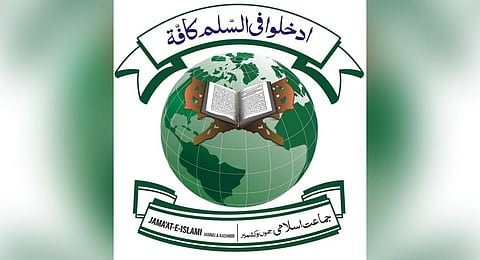

KOZHIKODE: In a move that will redefine its basic character and have a far-reaching impact on its functioning, the Jama’at-e-Islami, which branded democracy and Indian courts as “un-Islamic”, has introduced some crucial amendments to its constitution.
The stand on Jama’at workers’ participation in democracy has been amended while the term ‘un-Islamic courts’, to refer to the courts in the country, which has been a point of widespread criticism, has been removed from the charter.
Before the amendment, its constitution said that a Jama’at worker should not hold any key position in a government in a ‘non-divine’ (meaning un-Islamic) system.
Democracy was interpreted as ‘non-divine’ because it replaced the divine laws with man-made regulations. Jama’at preachers declared that democracy in its essence was un-Islamic. A section in the constitution exhorted the Jama’at workers to shun membership of legislatures and postings as judges under ‘non-divine’ systems.
The word ‘non-divine’ has been removed altogether. Instead, the amended portion says that a person who “holds post in government or holds the post of a judge in its judicial system or becomes a member of the legislature should not act against truth and justice.”
Section 9/7 of the constitution said that a person who makes a livelihood by being a tool of the ‘non-divine’ system should leave the position as soon as possible. This section has been completely removed from the amended constitution.
Section 9/8 of the document directed Jama’at members “not to approach the un-Islamic courts unless it is unavoidable.” The amendment reads, “One should show care in following the dos and don’ts of the deen (Islam) and approach courts for the resolution of problems only if it is utmost necessary.”
Jama’at Kerala Amir P Mujeeb Rehman told TNIE that the changes were brought in to equip the organisation to face new challenges. “The changes will enable us to more creatively engage in the democratic system,” he said. The crisis in present-day India can be tackled effectively through legal and democratic means, he added.
Amendments made to address discrepancies
The amir said the amendments were carried out in 2019 but there was a delay in uploading the revised document on the website. It has been pointed out that there was a mismatch between the functioning of the Jama’at at the ground level and certain assertions in its constitution.
The Welfare Party of India was formed under the Jama’at leadership to participate in the elections, but the reference to democracy as un-Islamic remained unchanged in the constitution.
Similarly, the organisation formed an association for lawyers and trained the youth for jobs in judicial services, but the reference to ‘un-Islamic courts’ remained in the document. The amendments were introduced to address these discrepancies.